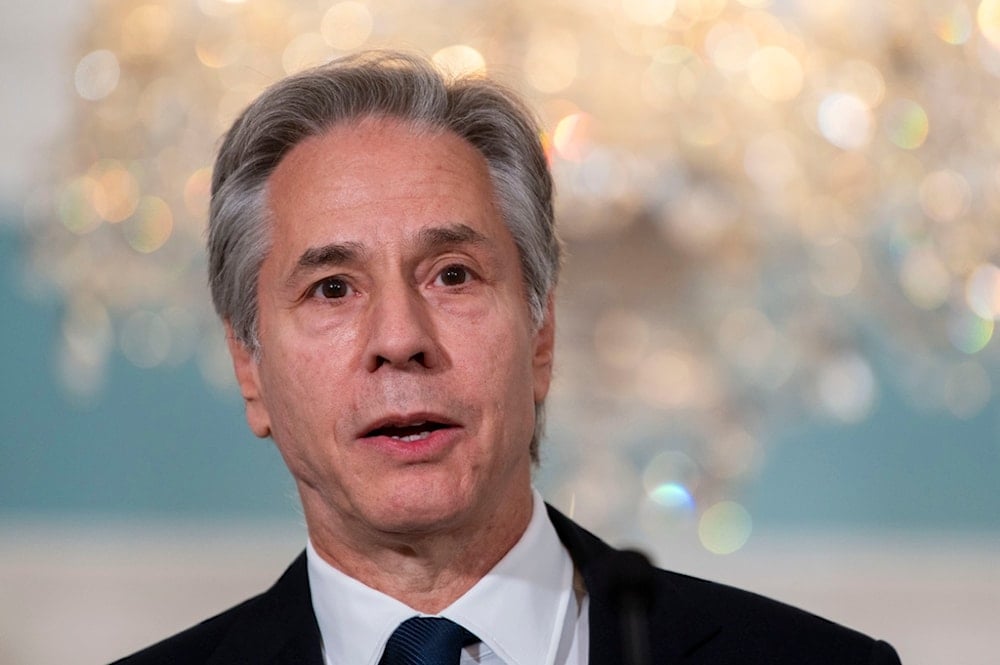Blinken urges Senate to speed envoy confirmations amid diplomatic lag
The US Secretary of State warns that vacancies in embassies create diplomatic voids in regions where the US is vying with China and Russia for influence.
-

Secretary of State Antony Blinken speaks during an event with Secretary of Commerce Gina Raimondo on the Economic Benefits of US Travel and Tourism on Tuesday, October 29, 2024. (AP)
US Secretary of State Antony Blinken, nearing the end of his term, called for swift Senate action on ambassadorial and other high-ranking diplomatic confirmations, arguing that the prolonged delays are weakening US influence abroad and aiding competitors like China.
Speaking at the Foreign Service Institute in Washington, Blinken highlighted the delays as part of a "broken system" that fuels perceptions of US decline, dissuades public service, and leaves key diplomatic posts unfilled.
"The system is broken," Blinken said, criticizing delays that have left the average ambassador waiting 240 days for approval, compared to just 50 days in 2001.
His remarks reflect increasing frustration within the Biden administration as US foreign policy priorities are hampered by domestic gridlock in the Senate, with many of these delays attributed to Republican opposition.
Currently, around 15 US embassies, including those in Germany, Turkey, and Cambodia, are without ambassadors, with some posts left empty for over a year.
Diplomatic voids
These vacancies, Blinken warned, create diplomatic voids in regions where the US is vying with China and Russia for influence.
He pointed to the absence of a US ambassador in Libya, where nominee Jennifer Gavito recently withdrew after long delays, as an example of missed opportunities.
The gaps, Blinken argued, give space for other powers to exert influence and undermine US objectives.
"It's undermining our competitiveness. It's disincentivizing public service," he said. "Of course, this all feeds our competitors' false narratives of our decline and division. It reinforces their conviction -- their false conviction -- that now is the time to challenge the United States and pursue their revisionist goals," he said.
Read more: Russia could 'combine' with China if faced with threat
Additionally, Blinken touched on the State Department's new "China House" initiative, which aims to address Beijing's growing influence and organize US diplomatic efforts more effectively.
Still, he emphasized that the Senate's slow pace of confirmations limits the State Department's ability to project power and respond swiftly to global challenges.
The delays extend beyond ambassadorships, affecting other national security roles and leading to uncertainties in budget allocations.
President Joe Biden echoed Blinken’s concerns, urging Congress to resolve the deadlock and support initiatives like PEPFAR, the anti-HIV/AIDS program, which has faced reauthorization delays in recent months.

 3 Min Read
3 Min Read








